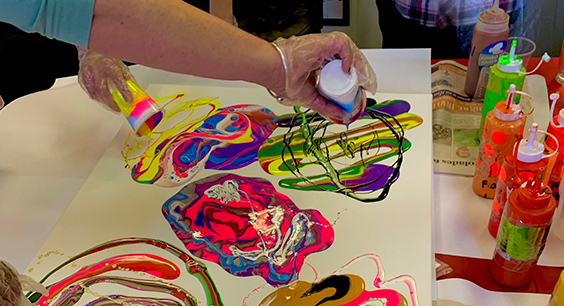Alcohol and other drugs is one of the nine key priority areas for CHN. In the last year, CHN has funded local organisations to provide support for people with alcohol and other drug issues.
CHN funds the Canberra Alliance of Harm Minimisation and Advocacy (CAHMA) to provide Peer Treatment Support Service (PTSS). CAHMA gives clients a safe and welcoming environment to explore personal goals towards management of AOD issues or direction toward greater wellbeing through fostering a client-led, harm-reduction approach and an attitude where the client feels ownership over health outcomes.
Clients receive support to engage with necessary AOD service providers, enhance health literacy and access treatment. The service also provides case management for clients in treatment, and referral to clients on or considering pharmacotherapy (methadone or buprenorphine) programs.
All staff and volunteers within CAHMA have lived experienced with AOD and many are still undergoing pharmacotherapy support. This enables the organisation to provide a personal yet experienced environment to engage from and assists in the promotion of trust and empowerment.

Testimonial
The CAHMA Community Centre is many things to many people…..
Today we are an art studio.People crowd in and don plastic aprons, colourful paint mixes in tubs – blues, yellows, reds, all the colours of the rainbow. White canvasses are held in people’s hands and the centre buzzes with excitement. People greet, meet and re-meet as the leader explains the plan. Let the paint run and splash, let the paint tell your stories. When you feel the paint flowing and spreading, look into the picture it creates and talk to each other. That’s all. Just talk…
A person is told about the CAHMA Art Group by another community member who has attended the art group before and decides to come along. She eats the healthy lunch provided and begins enjoying the process of creation.
Through this engagement the person starts to talk to the other participants, which include members of the CAHMA staff who also enjoy creating and exploring. The person builds trust with a CAHMA Peer Treatment Support Worker and together they decide to dig deeper and enter the person into the CAHMA Peer Treatment Support Program. The person tells the worker that she has attended a number of medical appointments (she was trying to get onto the opioid maintenance program) but has had no success for a variety of reasons. In particular she gets overwhelmed and anxious and finds the doctor’s language difficult to understand. She explains that she is tired and at the verge of giving up. The worker understands intuitively because they have felt that same experience. She tells the person of her own experience and builds rapport and trust with the person in a respectful manner to support her to try once again to get onto the program.
The person is transported and accompanied to another medical appointment with the CAHMA worker who is able to discuss issues and ask appropriate questions to ascertain why the client had been unable to receive treatment. In the appointment, the worker explains the treatment options available to the client and discusses the experiences and needs of the person with the doctor. An understanding is formed between all three people that the person be placed on the right treatment option for their needs.
The worker accompanied the person to pick up her medication daily and within 5 consecutive days of picking her medication up from the clinic the person was able to be successfully transferred to a pharmacy closer to her residence.
This was a successful outcome for the person who is now stabilized on her medication and has returned to her online studies and is currently seeking employment.
She still has the painting she made that morning at the CAHMA Community Centre.
CAHMA Community Centre
CHN Annual Report 2019-20 - Contents (click to expand)
- From the Chair and CEO
- COVID-19 response
- Priority areas
- Workforce
- Care across the continuum
- Vulnerable groups
- Mental health
- The Regional Mental Health and Suicide Prevention Plan
- Suicide prevention: LifeSpan
- Mental health support: Next Step
- Support following a suicide attempt: The Way Back Support Service
- Borderline Personality Disorder: Dialectical Behavioural Therapy for Emerging Adults
- Psychosocial support for people with mental illness
- Mental health services for young people: headspace
- Aged Care
- Aboriginal and Torres Strait Islander health
- Digital health
- Alcohol and Other Drugs
- Chronic disease management
- Financial Statements

